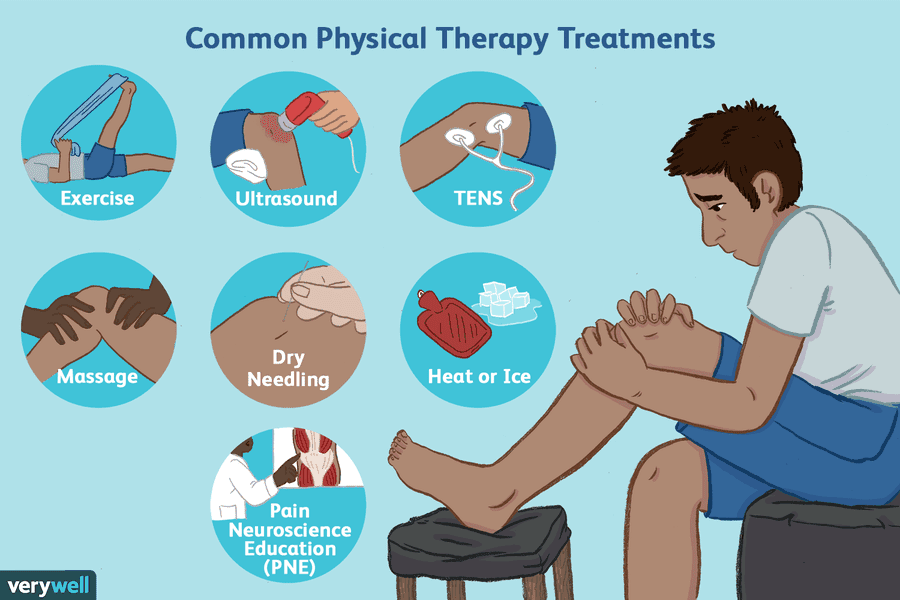In the current fast-paced world, the connection between our mental and physical health has never been clearer. With increasing evidence backing the impact of physical health on mental well-being, physical therapy acts as a crucial resource for those who are not just recovering from injuries but also enhancing their overall quality of life. Through integrating physical rehabilitation strategies, individuals often find relief from chronic pain, better mobility, and lessened anxiety, all of which contribute to a healthier mindset.
For many, the journey into physical therapy may seem daunting. Questions about what to expect and how it can aid in pain management and injury recovery often arise. However, physical therapy offers beyond just recovery from injury; it is a pathway to wellness that addresses chronic conditions, boosts athletic performance, and fosters independence as we age. Whether you are a experienced athlete or someone seeking relief from everyday aches, understanding the myriad benefits of physical therapy is the first step toward adopting a more nutritious, more active life.
Grasping Physical Therapy
Physical therapy is a medical discipline focused on the evaluation and management of physical limitations, functional deficits, and handicaps. It uses a variety of techniques such as manual therapy, exercises, and modalities to help patients regain mobility, alleviate pain, and enhance overall physical function. It is often sought after following traumas, operations, or health issues that impact movement and quality of life.
One critical feature of physiotherapy is its individualized approach. Each therapy plan is designed to the unique needs and goals of the individual, factoring in their medical history, current condition, and personal objectives. click site personalized care facilitates a better recovery process, tackling both the bodily and psychological aspects of recovery.
Additionally, physiotherapy plays a vital role in preventing future injuries and improving physical performance. By educating clients on correct body mechanics, workplace ergonomics, and fitness methods, physical therapists empower individuals to take an proactive role in their health. This proactive focus not only helps individuals heal from injuries but also promotes long-term wellness and improves overall mental well-being.
Benefits of Physiotherapy for Psychological Well-being
Physiotherapy offers numerous advantages that extend beyond the physical aspects, greatly affecting psychological well-being. Engaging in consistent fitness activities through customized therapy sessions can boost the level of endorphins, which are natural mood enhancers. This boost in mood-enhancing chemicals can help lessen signs of anxiety and depression, encouraging an overall sense of well-being. Furthermore, the structured nature of rehabilitation provides a sense of routine and success, which is particularly advantageous for those struggling with mental health issues.
Additionally, physical therapy can act as a significant resource for boosting awareness and mitigating anxiety. Many therapy practices incorporate techniques that encourage clients to pay attention on their physical state and breathing, developing a mind-body connection. This form of mindfulness can help individuals manage stress more effectively and nurture a greater awareness of their physical and emotional states. As https://stewart-dreier.blogbright.net/rehabilitation-treatment-for-sportspersons-training-wisely-and-safe and recover strength, the belief in oneself gained can translate into enhanced self-worth and perseverance, forming a positive feedback loop for psychological well-being.
Moreover, the communal nature of physical therapy can have a critical role in boosting mental health. Participating in group therapy sessions or working closely with a physical therapist fosters social engagement, lessening feelings of loneliness and solitude. Creating connections within the therapy environment creates a system that supports emotional bonding, exchange of stories, and inspiration. Ultimately, the integrated approach of physical therapy not only assist physical recovery but also significantly improves psychological well-being gains.
Physical Therapy Methods and Approaches
Physical therapy encompasses a diverse array of methods and approaches tailored to individual requirements. Manual therapy is one of the primary methods, which involves direct techniques aimed at reducing discomfort and increasing movement. Practitioners employ their manual skills to manipulate articulations and soft tissues, alleviating stress and enhancing function. This approach is especially helpful for conditions such as back pain, neck pain, and other musculoskeletal conditions.

Additionally, another fundamental aspect of physiotherapy is the implementation of therapeutic exercises. These exercises are specifically crafted to improve muscle power, endurance, flexibility, and stability. Depending on the patient's condition, a physical therapist will design a customized fitness regime that gradually tests the body while maintaining security and efficacy. This structured routine not only aids in recovery from trauma but also contributes to overall wellness and averts future issues.
Additionally, modalities such as electrical therapy, sonic therapy, and thermal therapy are utilized to enhance other therapies. These methods can assist alleviate discomfort and inflammation, speed up healing, and enhance the efficacy of therapeutic exercises. When combined properly, Learn More Here form a holistic approach that tackles both physical and mental health, demonstrating the profound relationship between physical function and psychological well-being.
